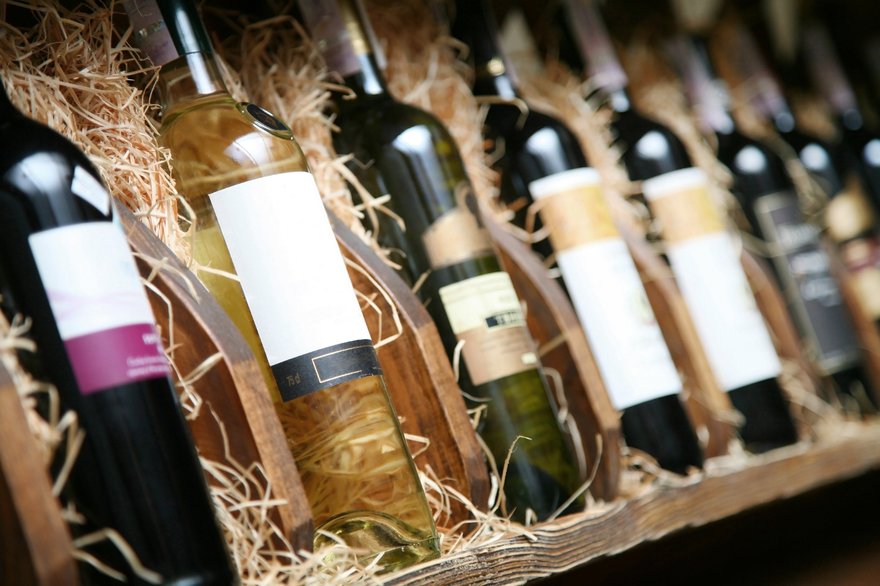For thousands of years, wine was often held in reserve for the social elite, an expensive luxury item inaccessible to the masses. Today, wine is enjoyed by hundreds of millions of consumers around the globe and is quite accessible -- as both a beverage and an investment. It isn't the highest-growth industry anymore (like it was in the 1970s when California's wine industry was upsetting long-held beliefs about good wine), but investors have a number of wine stocks that can be paired with the rest of their portfolio.
Wine is worth tens of billions of dollars in spending every year, and some estimates point toward average annual growth in the mid-single-digit percentages in the next decade. Even so, investing in wine stocks can be a good option for investors looking for more stable returns and some dividend income.

Investing in wine stocks
Investing in wine stocks
Like other alcoholic beverage industries such as beer stocks and distilled spirits stocks, wine isn't just a slower and steadier growth sector of the economy. There also aren't a lot of pure-play options for investors hoping to bet solely on products of the vine. Some compelling options do exist, although most of them come with a portfolio of beer or alcohol brands to complement wine labels.
Here are three wine stocks to watch for as we head into the end of 2024 and into 2025, what they contribute to the winemaking business, and how to decide if they're right for you.
| Company | Market Cap | Description |
|---|---|---|
| LVMH Moët Hennessy Louis Vuitton (OTC:LVMUY) | $357.01 billion | A house of fashion and the owner of high-end French champagne labels such as Moët & Chandon. |
| Constellation Brands (NYSE:STZ) | $43.77 billion | Holding company for Corona and Modelo beers in the U.S. markets but also some popular and premium wine brands. |
| Treasury Wine Estates (OTC:TSRYY) | $5.97 billion | One of Australia's largest producers of wines. |
1. LVMH Moët Hennessy Louis Vuitton
1. LVMH Moët Hennessy Louis Vuitton
The sprawling luxury goods portfolio of France's LVMH Moët Hennessy Louis Vuitton has produced one of the world's richest people: CEO Bernard Arnault. Champagne and other ultra-high-end spirits feature prominently in this diverse portfolio of high fashion. The company's name indicates as much since champagne house Moët & Chandon is a premier beverage of the rich and famous, as well as a highly sought-after label for special occasions. Other premium champagne brands include Dom Pérignon, Krug, and Veuve Clicquot.
LVMH's wine and spirits segment reported 2.8 billion euros in revenue in the first half of 2024, and a profit from recurring operations of 777 million euros. Those two figures represented year-over-year declines from the first half of 2023 of 12% and 26%, respectively.
Bear in mind that the wine and spirits segment represents less than 10% of LVMH's total business, so if you invest in this stock, you're investing in a far wider swathe of industries than alcoholic beverages. LVMH reported total revenue across all segments of 41.7 billion euros in the first six months of 2024, down just 1% from one year ago on a reported basis and up 2% on an organic basis. Total profits from recurring operations were down single digits but still came in at 10.7 billion euros.
The luxury conglomerate overall is a long-term growth stock, and its collection of high-end products from fashion and leather goods to perfume and cosmetics to watches and jewelry is in consistently high demand. In emerging markets such as China, ultra-high-end goods are growing at a rapid pace as the country is expected to continue expanding its role within the global luxury market.
Shares also pay a dividend that yielded 3% at the time of this writing. The company's dividend payout has increased by approximately 230% over the trailing five-year period alone. For investors looking for steady growth from the epitome of grape-based alcoholic beverage luxury, look no further than LVMH Moët Hennessy Louis Vuitton.
2. Constellation Brands
2. Constellation Brands
Constellation Brands is best known for a Mexican beer portfolio that includes Corona, Modelo, and Pacifico. It also has several wine labels, including Kim Crawford, Robert Mondavi, and more. Previously, Constellation Brands held a 40% stake in marijuana business Canopy Growth (CGC 23.72%), making this stock a broader-based play on the beverage industry.
It has since made changes to that arrangement, given the ongoing headwinds that Canopy Growth is facing in the cannabis industry and the volatility across that market more broadly. In April 2024, Constellation Brands converted its stake to a new type of share where it will neither be receiving payments from Canopy Growth nor have voting power. It also withdrew its three directors from Canopy Growth's Board. Currently, Constellation Brands controls around 23.6% of Canopy Growth's outstanding shares.
Until 2021, Constellation was a fast-growing company, thanks to its beer business, which makes up the majority of total revenue. Its portfolio of alcoholic beverages has matured, though, and this is likely to be more of a slow-and-steady business. It's also been a tough few years in the macro environment, which means that cash-strapped consumers are tightening their wallets and scaling back purchases of alcoholic beverages.
However, as economic conditions continue to improve and that impact trickles down to the consumer, the durable tailwinds in the beverage industry could prevail here. The company is also demonstrating its resilience even as the economic landscape shifts.
Looking at the first half of Constellation's fiscal 2025, total net sales came to $5.6 billion, a 4% increase from last year. While the company was not profitable on the bottom line, it brought in a gross profit of $2.9 billion in the six-month period, an 8% year-over-year increase.
Broken down by segment, wine and spirits accounted for $777.7 million of that net sales total, down 10% from one year ago. The remaining $4.8 billion was from the beer segment, which saw a healthy 7% increase compared to the first half of fiscal 2024.
Constellation has proven to be a good investor in various alcohol businesses and has expanded the reach of its portfolio over the years. The company also pays a dividend that yielded around 1.7% at the time of this writing. Its payout has risen about 34% over the trailing five-year period.
3. Treasury Wine Estates
3. Treasury Wine Estates
This next pick jumps the Pacific and crosses the equator to Australia, one of the world's top wine producers. Treasury Wine Estates is one of the largest players in the country (Accolade Wines is another top business in Australia, but it is now owned by private equity firm Carlyle Group (CG 2.3%)). Treasury Wine Estates owns labels that include Penfolds, 19 Crimes, Stag's Leap, and Beaulieu Vineyard.
Treasury Wine Estates is a rare pure-play stock on wine, but shares have struggled to gain positive traction in recent years -- especially since the COVID-19 pandemic, as sales and profits have yet to fully rebound. As one of the largest players in the business, though, it pays a modest dividend and could be worth a look if you're wanting investment income.
Related investing topics
Investing in a luxury beverage for all
Wine stocks aren't for everyone. Much like other food and beverage stocks, wine isn't the fastest-growing industry out there. But as the global middle class expands, wine may offer some gradual growth in the years ahead, and a few wine holding companies dole out dividends, as well. Just remember to tread carefully and diversify any wine shares you might buy with other alcohol, beverage, and food stocks.





